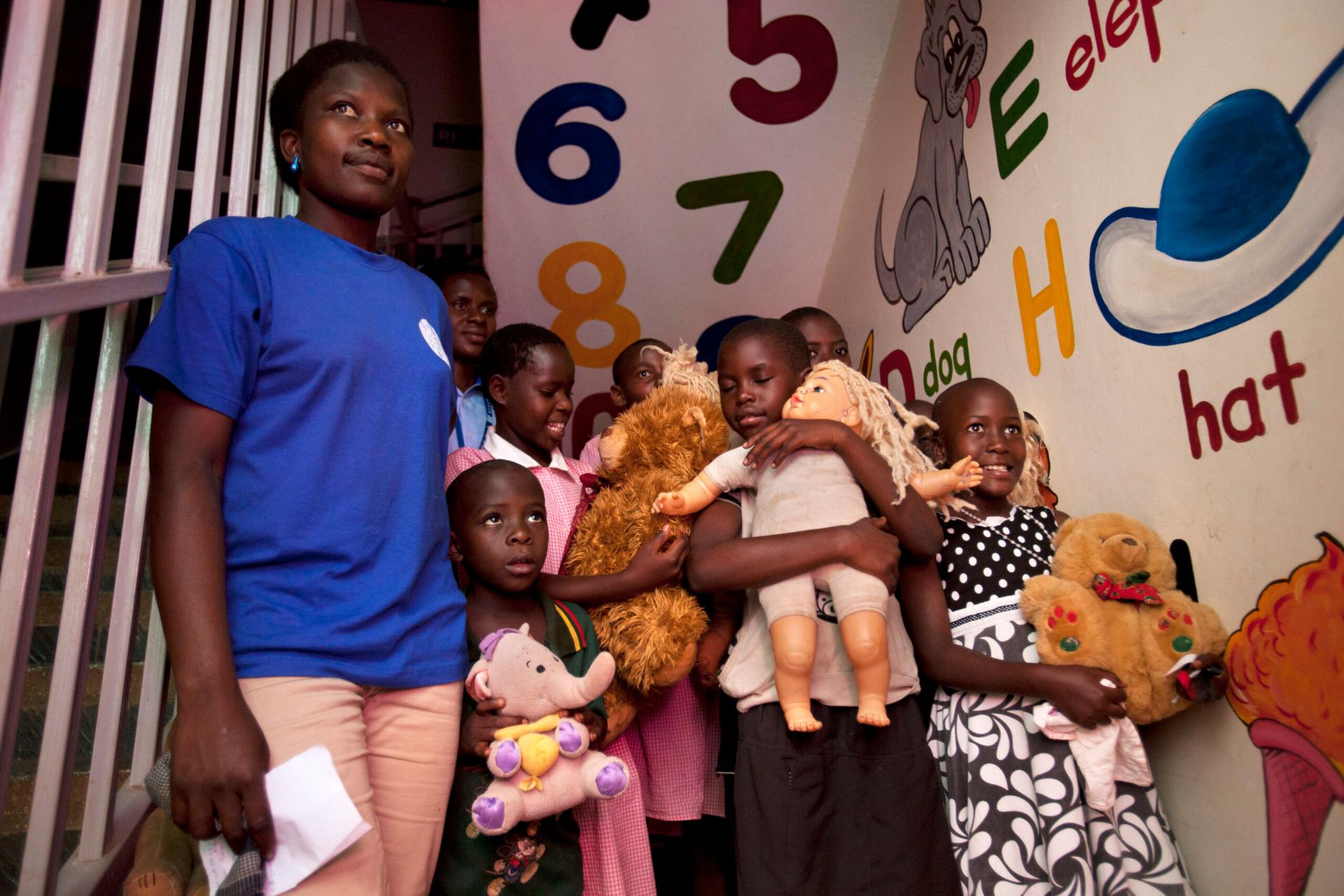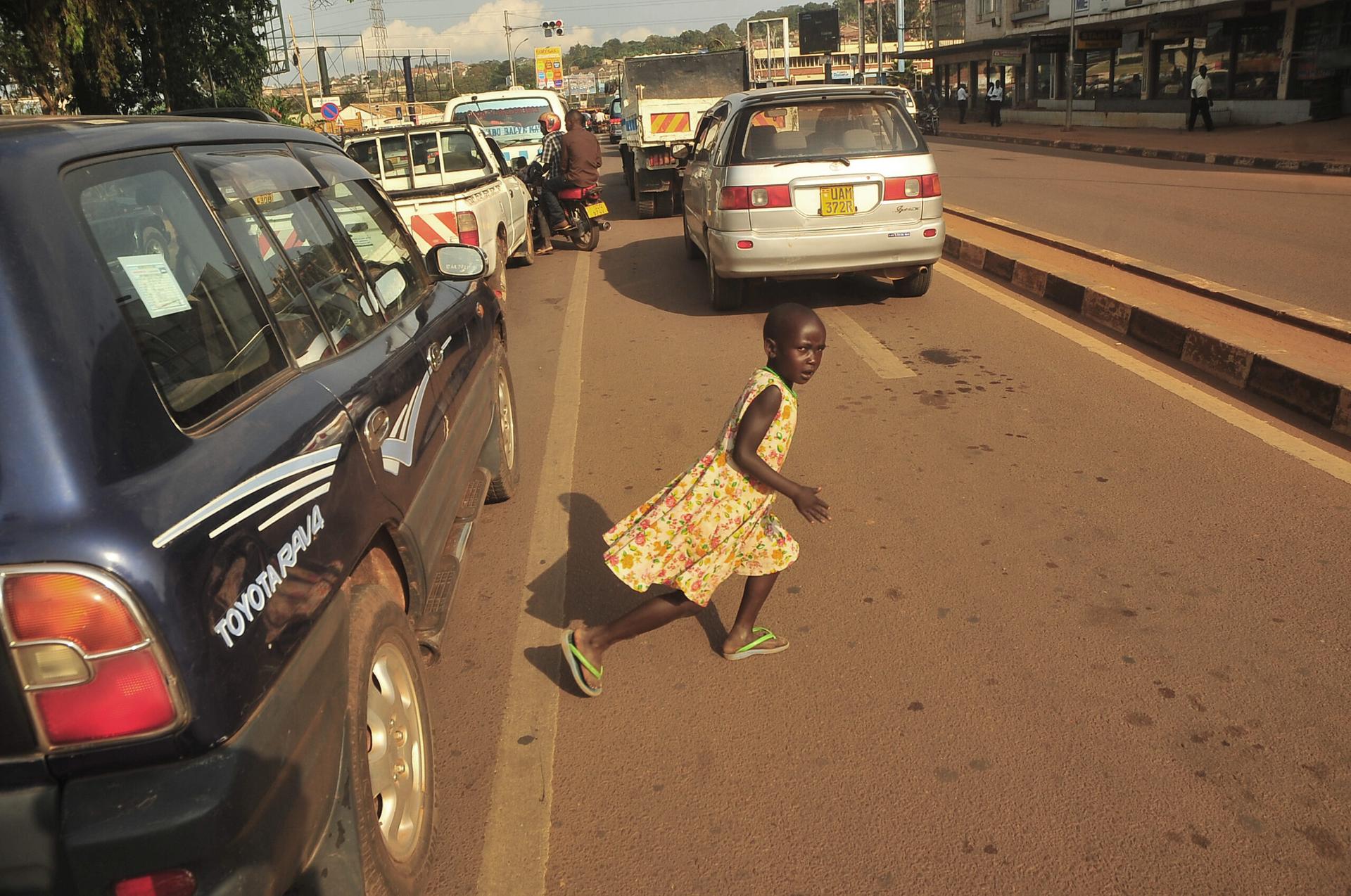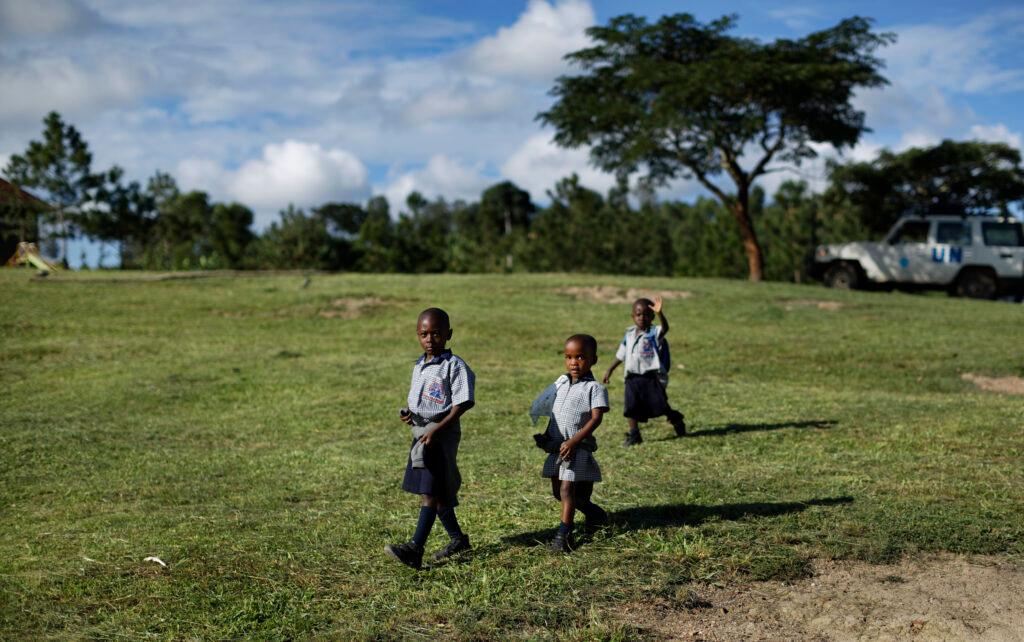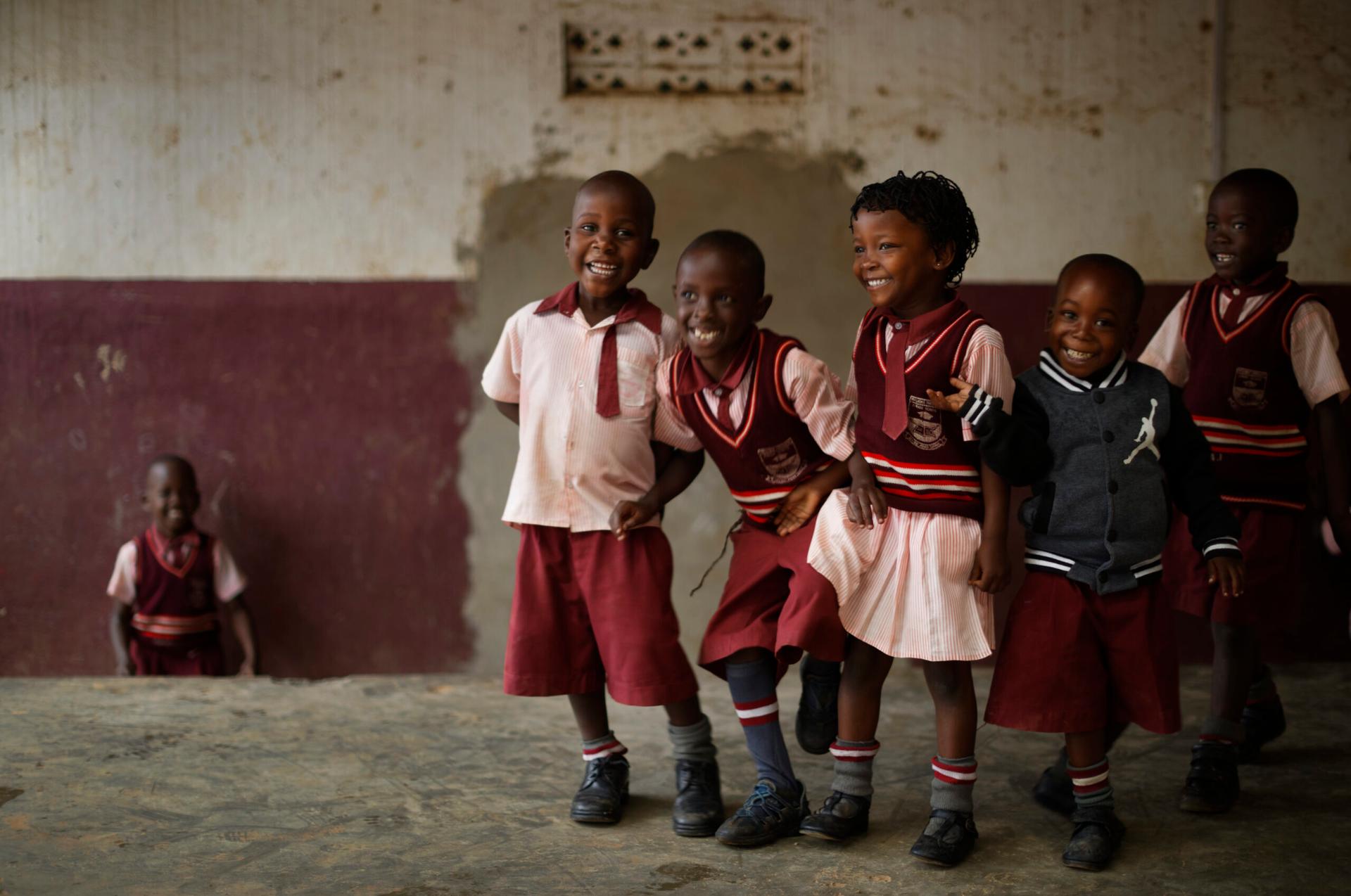Despite a global movement to deinstitutionalize orphans, Americans continue to support Ugandan orphanages
Editor’s note: The World’s Halima Gikandi spent a year investigating a number of Ugandan children’s homes and their impacts on kids. This story is part one of a four-part series. Listen to parts two, three and four, and the backstory.
When a group of brightly dressed, smiling Ugandan children took to the stages of “Britain’s Got Talent” in April of 2023, their charismatic dance performance won them the coveted golden buzzer.
The children represented Ghetto Kids, an organization that was described as an orphanage supporting poor children and orphans.
Their performance received millions of views online, and fans called it the ultimate feel-good audition. But experts working and studying in the child-care reform sector — both in and out of Uganda — grimaced at the presentation.
“The discussion that I had with people who work in care reform in Uganda was, first of all, a little bit of alarm,” said Kristen Cheney, a professor at the University of Victoria who has studied orphanages and orphanhood in Uganda for more than a decade.
“As far as the show went, they glorified this group that was clearly from an unregistered children’s home,” she continued.
The World confirmed with the founder of Ghetto Kids and a government official in Uganda that the organization was not licensed to operate as a children’s home. Orphanages are officially referred to as “children’s homes” in Uganda, in part, because of the stigma that comes with the word “orphanage.”
In recent decades, research on the findings of the harmful effects of orphanages has propelled a global movement to deinstitutionalize kids, and take them out of orphanages in favor of putting in resources to strengthen families and communities.
The Ugandan government has received millions of dollars from the United States, the European Union and other partners to do this. Despite those efforts, these kinds of children’s homes, especially illegal ones, continue to proliferate in Uganda — often operating outside of government oversight and in opposition to the best practices and guidelines laid out by child-care specialists.
Cheney traces this interest in African orphans back to the HIV/AIDS epidemic in the 1980s and 1990s, which had killed millions of people and impacted a whole generation of children.

While children who lost their parents in Uganda were traditionally taken in by their extended families and communities, the HIV/AIDs epidemic brought growing concerns that these networks would be stretched to the limit and create a crisis of AIDS orphans.
Although few orphanages existed in Uganda during the HIV/AIDS epidemic, she said, by 2015, the number of children’s homes ballooned to an estimated 800 institutions in Uganda.
According to a 2017 study, the majority of the funding going into orphanages in Uganda comes from Western countries like the US and the UK.
Especially from religious organizations, said Elli Oswald, executive director of the Faith to Action Initiative,which provides resources to churches and Christian organizations on best practices for helping orphaned and vulnerable children.
“US Christians, specifically, are undeniably having a sincere desire to care for orphaned and vulnerable children around the world. Because throughout the Bible, we see a mandate to serve the orphan,” Oswald said.
Cheney has argued that the call from international organizations, including the United Nations, to help orphans in Africa brought a surge in private foreign donations and tourism to children’s homes. She said it has ultimately created financial incentives for people to open orphanages in Uganda for children who should be with their families. She dubs this phenomenon the “orphan industrial complex.”
“You have a middle man, you have people on the ground who make a living off of it,” she said.
During a yearlong investigation, The World looked at the public tax records of a number of children’s homes in Uganda, and found some institutions were receiving hundreds of thousands and even millions of dollars a year in contributions, donations and grants.
According to interviews with several child-care reform experts and government officials, these private donations to orphanages have undercut Uganda’s efforts to help poor families and address the root causes that have brought kids to these institutions.
According to Cheney’s research, the largest driver of children into these institutions is poverty.

“Because if you build an orphanage in a poor community — they will come. Especially if you don’t advertise the orphanage as an orphanage per se. But what they would do, especially when people didn’t come necessarily, is go out into the community and find people with young children and say, ‘Look, free school.’ Because that was really the issue,” Cheney explained.
Despite these good intentions, however, “recent research in the last few decades have shown that orphanages and children’s homes are not having the kind of impact and outcomes that we would hope” said Oswald of Faith to Action Initiative.
A 2019 report by the Uganda Care Leavers project found that of 260 young adults who grew up in residential institutions in Uganda, 71% had experienced physical or emotional abuse.
Globally, decades of research has shown that staying at orphanages can have long-term consequences on children’s health and development as well.
This message, however, hasn’t made its way to a lot of Christian donors.
According to a 2017 CRS poll, most Americans think orphanages are providing vital services to children who have lost their parents, and think that orphanages still exist in the United States, although these types of institutions were largely phased out about 50 years ago and replaced by the foster-care system that places children with vetted host families.
A recent study by the Barna Group found that nearly 1 in 5 Christians in America has donated to children’s homes around the world.
“With this amount of money, it’s almost become an industry,” Oswald said. “And if this is an industry, children are the commodity.”
Oswald’s organization is one of several growing efforts among Christian communities to rethink funding orphanages, and instead, support family-based care options for poor children, like supporting extended families, foster care and adoption.
Research has shown that most kids in children’s homes in Uganda do have a parent, or extended family who could take care of them.
But getting buy-in from donors can be difficult, Oswald said.

“They may feel it’s too complicated or too risky to support children in the context of their families, wondering how will they know that children are safe and getting what they need?” Oswald said, adding, “Family-based care isn’t about pushing families back into families without support. Family-based care is about helping families provide the best care possible to their children.”
Oswald said US Christians can play a positive role if they redirect their funding toward different approaches to taking care of children.
People don’t usually want their children to wind up in orphanages, she said, adding, “Why would we want that for any other child around the world?”
Rachel Kabuye is a Ugandan woman who lived in an orphanage after spending several years on the streets following a tragic series of events that unfolded when she was around 7.
After her father’s sudden death, she had nowhere to go. She said she wishes that she could have lived with another family member after her father’s death.
“We had other family members, we have relatives. And some of these people could [have been] in a good position of helping us if the orphanage was able to integrate us with our families.”
Kabuye claims that she also experienced sexual abuse by a staff member.
Kabuye, who is now in her 30s, said she still struggles to fit in with her extended family. She hopes that donors in America will reconsider where they send their donations.
“As you hear my voice, please pray over it, and also take time to come and see where you are investing the little you have,” she said.
The story you just read is accessible and free to all because thousands of listeners and readers contribute to our nonprofit newsroom. We go deep to bring you the human-centered international reporting that you know you can trust. To do this work and to do it well, we rely on the support of our listeners. If you appreciated our coverage this year, if there was a story that made you pause or a song that moved you, would you consider making a gift to sustain our work through 2024 and beyond?
